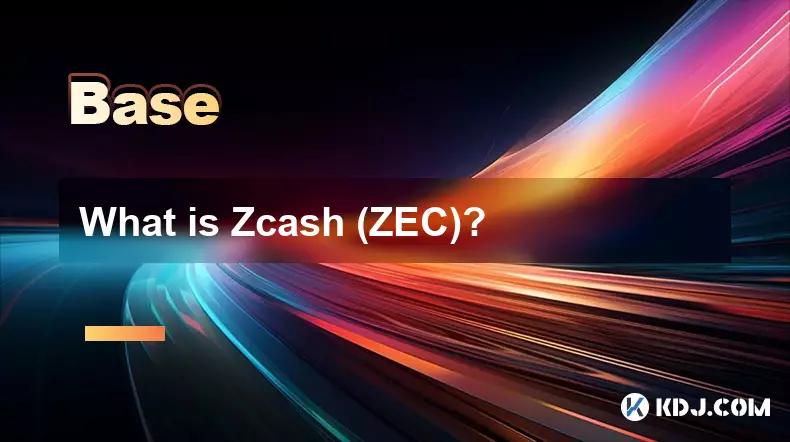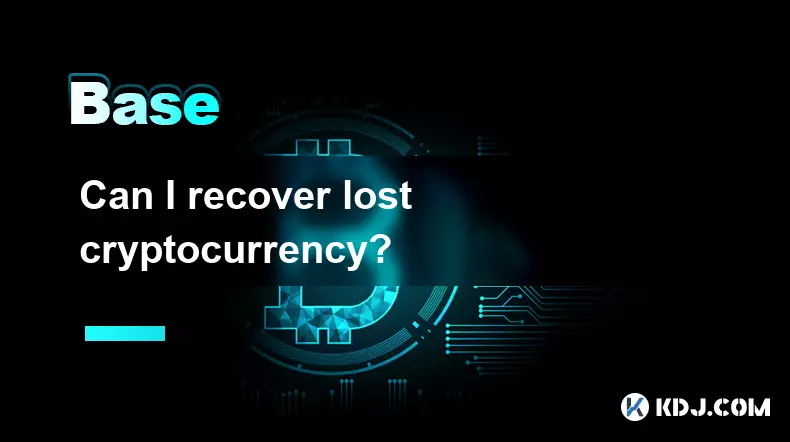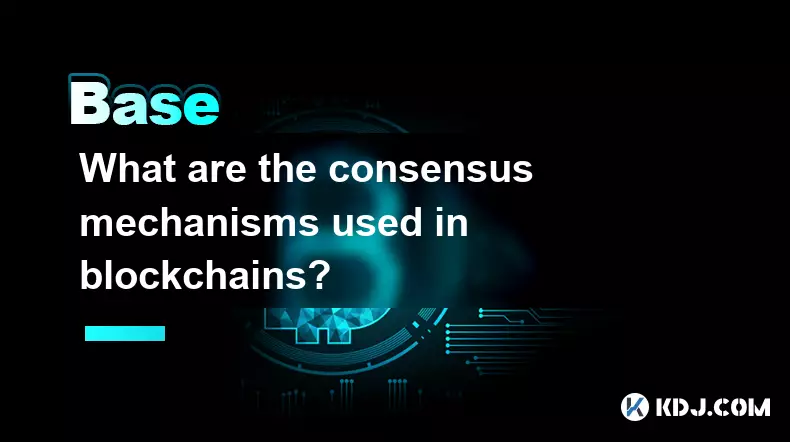-
 bitcoin
bitcoin $109667.069529 USD
-3.03% -
 ethereum
ethereum $3936.685804 USD
-4.07% -
 tether
tether $1.000493 USD
0.01% -
 xrp
xrp $2.771823 USD
-4.74% -
 bnb
bnb $957.805027 USD
-5.34% -
 solana
solana $196.735100 USD
-6.68% -
 usd-coin
usd-coin $0.999727 USD
-0.01% -
 dogecoin
dogecoin $0.227355 USD
-5.12% -
 tron
tron $0.335205 USD
-0.81% -
 cardano
cardano $0.779256 USD
-3.59% -
 ethena-usde
ethena-usde $0.999900 USD
-0.06% -
 hyperliquid
hyperliquid $42.492095 USD
-6.61% -
 chainlink
chainlink $20.501853 USD
-4.34% -
 avalanche
avalanche $28.952606 USD
-11.21% -
 stellar
stellar $0.356038 USD
-3.93%
What is Zcash (ZEC)?
Zcash (ZEC) is a privacy-focused cryptocurrency using zk-SNARKs to enable shielded transactions that hide sender, receiver, and amount, offering users strong financial confidentiality.
Sep 14, 2025 at 08:18 pm

What is Zcash (ZEC)?
1. Zcash is a decentralized cryptocurrency that emphasizes privacy and security in digital financial transactions. Launched in 2016 by a team of scientists and engineers, Zcash operates on a blockchain similar to Bitcoin but introduces advanced cryptographic techniques to protect user identities and transaction details. Unlike transparent blockchains where all transaction data is publicly visible, Zcash allows users to send and receive funds without revealing sender, receiver, or transaction amount.
2. The core innovation behind Zcash is its use of zero-knowledge proofs, specifically zk-SNARKs (Zero-Knowledge Succinct Non-Interactive Argument of Knowledge). This technology enables one party to prove to another that a statement is true without revealing any information beyond the validity of the statement itself. In the context of Zcash, it allows transaction verification without exposing the inputs, outputs, or amounts involved, ensuring complete confidentiality.
3. Zcash offers two types of addresses: transparent (t-addresses) and shielded (z-addresses). Transactions between t-addresses function similarly to Bitcoin, with all data visible on the blockchain. When z-addresses are used, the transaction details are encrypted and only accessible to those with the appropriate viewing keys. Users can choose the level of privacy they desire based on their needs, giving Zcash a flexible approach to anonymity.
4. The total supply of Zcash follows a model comparable to Bitcoin, with a capped maximum of 21 million coins. Mining is performed using the Equihash proof-of-work algorithm, which is designed to be resistant to ASICs, promoting a more decentralized mining environment. However, over time, specialized hardware has still emerged, leading to ongoing discussions within the community about mining fairness and network security.
5. Zcash has been adopted by various privacy-focused platforms and services, particularly those concerned with financial confidentiality. Its ability to provide selective transparency—where users can disclose transaction details to auditors or regulators if needed—makes it appealing for institutional use cases where compliance and privacy must coexist. This balance positions Zcash uniquely within the broader cryptocurrency ecosystem.
Privacy Features of Zcash
1. The primary appeal of Zcash lies in its robust privacy mechanisms. By leveraging zk-SNARKs, Zcash ensures that transactions can be fully shielded, meaning no third party can trace the flow of funds without explicit authorization. This level of confidentiality is particularly valuable in environments where financial privacy is paramount.
2. Shielded transactions encrypt the sender, receiver, and transaction amount, making Zcash one of the most private cryptocurrencies available. This contrasts sharply with most major cryptocurrencies, where blockchain explorers can easily track wallet balances and transaction histories.
p>3. Users maintain control over their privacy settings. They can opt for full transparency when required—for example, during tax reporting or corporate audits—or choose complete anonymity for personal transactions. This flexibility supports both regulatory compliance and individual freedom.
4. Despite its strong privacy guarantees, Zcash does not completely hide metadata such as transaction timing and network propagation patterns. While the content of transactions remains secure, advanced traffic analysis could potentially infer some behavioral patterns, prompting ongoing research into additional obfuscation methods.
5. The Zcash Foundation actively supports improvements to privacy protocols, including upgrades like Zebra and Orchard, which enhance performance and expand the capabilities of shielded transactions. These developments aim to increase adoption while maintaining the integrity of the network’s privacy-first design.
Use Cases and Adoption
1. Zcash is utilized in scenarios where financial discretion is essential. Individuals in regions with unstable governments or restrictive financial systems often turn to Zcash to protect their assets from surveillance or confiscation. Its decentralized nature makes it resistant to censorship and control.
2. Merchants and service providers who prioritize customer privacy integrate Zcash into their payment systems. By accepting ZEC, businesses can offer discreet transactions without exposing their clients’ spending habits or financial data to external parties.
3. Institutional investors and fintech platforms leverage Zcash's selective disclosure features to meet compliance requirements while preserving transaction confidentiality. This hybrid model allows for auditing and regulatory reporting without compromising the underlying privacy infrastructure.
4. Some decentralized applications (dApps) built on interoperable networks incorporate Zcash’s privacy layer to enhance user trust. By enabling private transactions within smart contract ecosystems, Zcash contributes to the evolution of confidential finance (or 'confi').
5. Adoption remains limited compared to more mainstream cryptocurrencies, partly due to complexity in managing shielded addresses and slower transaction speeds. However, continuous development and education efforts aim to lower barriers to entry and improve user experience.
Frequently Asked Questions
How does Zcash differ from Monero?Zcash allows users to choose between transparent and shielded transactions, whereas Monero automatically obscures all transaction details. Zcash relies on zk-SNARKs for privacy, while Monero uses ring signatures, stealth addresses, and confidential transactions. Each approach has trade-offs in terms of scalability, verification efficiency, and default privacy levels.
Can Zcash transactions be traced by governments or third parties?Shielded Zcash transactions cannot be viewed on the public blockchain without access to decryption keys. However, if a user interacts with a regulated exchange or service that requires identity verification, their activity may be linked through off-chain data. The blockchain itself does not expose private transaction details.
Is mining Zcash still profitable for individual miners?While Zcash was initially designed to be ASIC-resistant, specialized mining equipment has become dominant. Profitability depends on electricity costs, hardware efficiency, and market price. Solo mining is rarely viable; most participants join pools to increase chances of earning rewards.
What happens when Zcash halving occurs?Zcash undergoes periodic halvings approximately every four years, reducing the block reward miners receive. This mechanism controls inflation and mimics Bitcoin’s scarcity model. The reduced issuance rate can influence market dynamics, potentially increasing price pressure if demand remains steady or grows.
Disclaimer:info@kdj.com
The information provided is not trading advice. kdj.com does not assume any responsibility for any investments made based on the information provided in this article. Cryptocurrencies are highly volatile and it is highly recommended that you invest with caution after thorough research!
If you believe that the content used on this website infringes your copyright, please contact us immediately (info@kdj.com) and we will delete it promptly.
- Pi Network, Price Forecast, and the Meme Market: A New York Minute
- 2025-09-26 10:25:14
- Google, AI, and Bitcoin Mining: A New Era of Convergence
- 2025-09-26 10:25:14
- Antonio Brown, Charlie Kirk, and Epstein: A New York Minute on Trending Topics
- 2025-09-26 10:30:01
- Avalanche, ETFs, and Yuan Stablecoins: A New Era in Digital Finance
- 2025-09-26 10:30:01
- XRP, Cardano, and Opportunity: Navigating the Crypto Landscape
- 2025-09-26 10:30:01
- Rising Stocks: Is Now the Time to Invest?
- 2025-09-26 10:30:12
Related knowledge

Can I recover lost cryptocurrency?
Sep 25,2025 at 08:18am
Understanding the Nature of Cryptocurrency Loss1. Cryptocurrency operates on decentralized networks, meaning there is no central authority to reverse ...

How can I earn passive income from cryptocurrency?
Sep 23,2025 at 10:18am
Staking Cryptocurrencies for Regular Returns1. Many blockchain networks operate on a proof-of-stake (PoS) consensus mechanism, allowing users to earn ...

What are gas fees in cryptocurrency transactions?
Sep 26,2025 at 02:00am
Understanding Gas Fees in Blockchain Transactions1. Gas fees are payments made by users to compensate for the computing energy required to process and...

What are the consensus mechanisms used in blockchains?
Sep 24,2025 at 10:00am
Proof of Work and Its Role in Blockchain Security1. Proof of Work (PoW) is one of the earliest consensus mechanisms, first implemented by Bitcoin. Min...

How do cryptocurrencies impact traditional finance?
Sep 26,2025 at 05:54am
Disruption of Centralized Banking Systems1. Cryptocurrencies challenge the authority of central banks by offering decentralized alternatives to fiat c...

Is there a finite supply of Bitcoin?
Sep 23,2025 at 06:00am
Bitcoin's Fixed Supply Mechanism1. Bitcoin was designed with a hard cap of 21 million coins, making its supply finite and predictable. This limit is h...

Can I recover lost cryptocurrency?
Sep 25,2025 at 08:18am
Understanding the Nature of Cryptocurrency Loss1. Cryptocurrency operates on decentralized networks, meaning there is no central authority to reverse ...

How can I earn passive income from cryptocurrency?
Sep 23,2025 at 10:18am
Staking Cryptocurrencies for Regular Returns1. Many blockchain networks operate on a proof-of-stake (PoS) consensus mechanism, allowing users to earn ...

What are gas fees in cryptocurrency transactions?
Sep 26,2025 at 02:00am
Understanding Gas Fees in Blockchain Transactions1. Gas fees are payments made by users to compensate for the computing energy required to process and...

What are the consensus mechanisms used in blockchains?
Sep 24,2025 at 10:00am
Proof of Work and Its Role in Blockchain Security1. Proof of Work (PoW) is one of the earliest consensus mechanisms, first implemented by Bitcoin. Min...

How do cryptocurrencies impact traditional finance?
Sep 26,2025 at 05:54am
Disruption of Centralized Banking Systems1. Cryptocurrencies challenge the authority of central banks by offering decentralized alternatives to fiat c...

Is there a finite supply of Bitcoin?
Sep 23,2025 at 06:00am
Bitcoin's Fixed Supply Mechanism1. Bitcoin was designed with a hard cap of 21 million coins, making its supply finite and predictable. This limit is h...
See all articles










































































